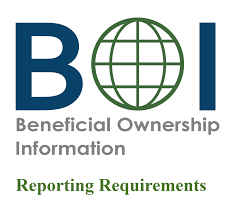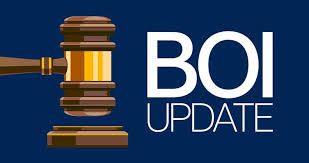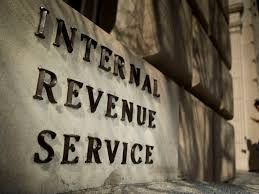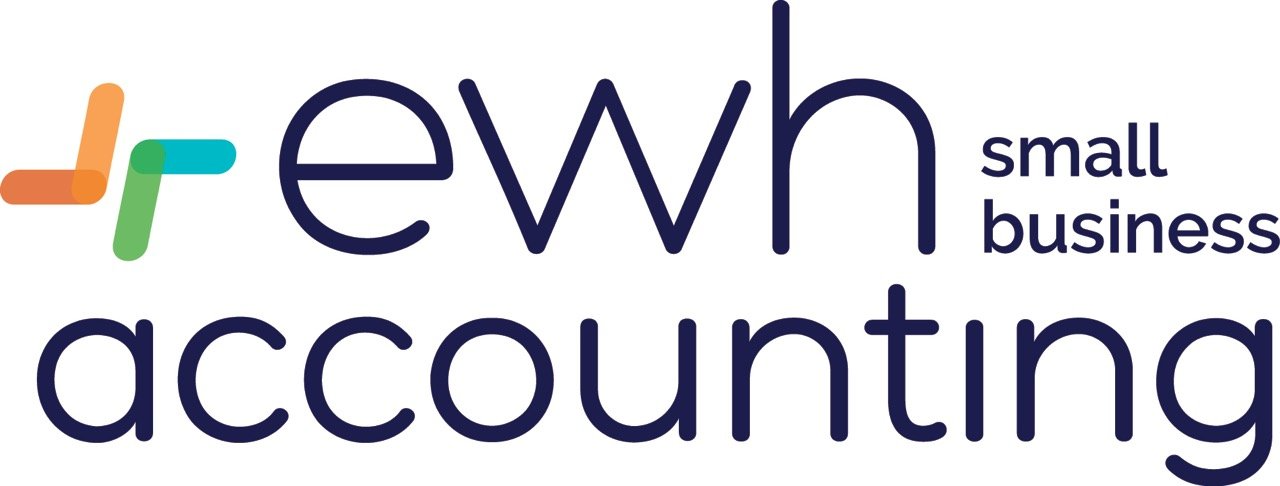
Thanks to a tip from writer and tax attorney Kelly Phillips Erb, we confirmed a series of confusing and potentially misleading errors on the IRS website just days before the tax filing deadline. What’s going on Tax professionals are reporting, and we’ve verified, that when logging into a taxpayer’s online account on IRS.gov, the system displays April 22, 2025, as the extension payment due date instead of the correct April 15, 2025, deadline. One possible explanation is that April 22 may refer to the five-business-day window to “perfect” a failed e-file submission. In these situations, while the original filing must still be submitted by April 15, the IRS allows until April 22 to correct errors and resubmit without late filing penalties. However, the site does not explain this situation, and the message lacks context. Additional problems found include: Mislabeling the amended return as “104X” (instead of Form 1040-X) Some are seeing a message that implies returns already filed and processed returns for 2022 and 2023 are still being processed Why this matters This misinformation could easily lead taxpayers and preparers to mistakenly delay extension payments until April 22, risking late payment penalties and interest. With no clear explanation on the page, this error is misleading and problematic for those relying on IRS guidance. What we’re doing We’ve raised these concerns with our IRS contact and requested immediate clarification and corrections to avoid further confusion during this critical time. We’ll monitor the situation and update you with any developments.

The Financial Crimes Enforcement Network (FinCEN) issued a major update on Friday to its beneficial ownership information (BOI) reporting requirements under the Corporate Transparency Act. In line with the U.S. Treasury’s March 2, 2025, announcement, U.S. companies and persons are no longer required to report BOI to FinCEN. Key points from the interim final rule: -The definition of a “reporting company” now includes only entities formed under foreign law that register to do business in the U.S. via state or tribal filings. -U.S.-formed entities (formerly known as "domestic reporting companies") are exempt from BOI reporting requirements. -Foreign reporting companies must continue to report BOI, but they will not be required to report any U.S. persons as beneficial owners. -Likewise, U.S. persons who are beneficial owners of such foreign entities are not required to report BOI to FinCEN. The FinCEN website provides new reporting deadlines and further guidance for foreign entities. NATP continues to monitor the situation and will keep you informed of any updates or changes to BOI reporting requirements as they arise.

Does your Accountant teach you how to understand your numbers so it’s meaningful to you and your restaurant? Do you understand the terminology? Do you know your breakeven point and is there a budget in place for your restaurant? Every business owner should be able to determine the strengths and weaknesses of their finances by reviewing the numbers of their financial statement. Your financial statement is comprised of 3 separate statements; a balance sheet, an income statement and the cash flow statement. The key factor to understanding your Financial Statement is having the right Accountant working with you. The right Accountant will develop a system showing you how to: A. Compile information – your monthly accounting information, such as your bank statement, sales and expense reports, etc., will be complied into a Financial Statement - the scorecard for your business. This scorecard is what you analyze to understand the story your numbers are telling you about your restaurant. B. Read Your Numbers – This is like the beginning step where you learn to read the words on the page. Understanding the key numbers on your financial statement like sales, profit or loss, wages, and ending cash is crucial. Reading the numbers is the first step, analyzing is the next step. Just because you understand the words on the page doesn’t mean you understand how to comprehend them in the context of the paragraph, chapter or a story as a whole. C. Analyze where you’re at – Understanding how to make your financial information meaningful is vital to making financial decisions. For example, taking the information on your scorecard and using it to determine your break-even point, or know how much working capital you have, develop a financial plan, working within a budget, or monitoring trends. Breaking out your wages, or your food costs from your liquor. Doing simple things like this will give you insight to the story your numbers are telling you. In financial terms, this is called financial analysis. These three steps allow you to get a complete and accurate understanding of how much money you have, how much money you owe, what’s your income and how much your business has in expenses. This is the story your numbers are telling you. The initial time invested in training a restaurant owner to understand these steps is vital because it enables them to understand what needs to change within their business financially, and focus. Focus on customer service and serving excellent food. Make sure you have a system in place to cover all your bases ensuring if you’ve made any of these mistakes you’re able to turn them in to successes. For more information, contact EWH Small Business Accounting S.C. by email at: info@ewhsba.com or give us a call at 608-781-5625.

All business owners face an interesting challenge: how to take profits out of the company and pay the least amount of taxes in the process. If you have an S corporation, there are basically two ways you can get money out of the company: by paying yourself a reasonable salary and by paying yourself distributions. The owner’s salary is subject to FICA and Medicare taxes while an income distribution is based on profits of the business and is not subject to FICA and Medicare taxes. HOW IT ALL FLOWS Below is an illustration of a Sub S corporation’s performance over two years, with a profit in the first year and breaking even in the second year. Year One ABC Corporation owned by John Smith makes a profit of $100,000 and John, the owner, (not the corporation) pays the taxes on the Profit. The Profit flows through to the Sub S owner who pays federal and state taxes on the profit. The $100,000 Profit flows to the owner’s personal tax return and owner pays personal taxes of $20,000. Instead of writing a personal check, the owner elects to have the business write a check which is classified as an income distribution to the owner, leaving the business with $80,000 in the bank. Year Two The owner elects at the end of year two to take a $70,000 income distribution. He is not required to pay taxes since the business did not have a profit in year two. Taxes were paid in year one on the profit that was distributed in year two. The important thing to remember is that the owner pays income taxes each year on the profits that flow to him/her. The income tax owed is calculated on the profit, not the amount of distribution. The moral of the story is: You pay taxes when profits are incurred, not when the cash is distributed. For more information, contact EWH Small Business Accounting S.C. by email at: info@ewhsba.com or give us a call at 608-781-5625.

On Feb. 18, a Texas district court lifted the last remaining nationwide block against enforcing the Corporate Transparency Act (CTA), restoring beneficial ownership information (BOI) reporting requirements. To allow businesses additional time to comply, FinCEN has extended the BOI filing deadline by 30 days for most companies. The new filing deadline is March 21, 2025, unless a later date applies to businesses in a federally declared disaster area. FinCEN is also considering further modifications to reporting requirements and deadlines, particularly for lower-risk small businesses. It is important to note that on Feb. 10, the U.S. House of Representatives voted 408-0 to postpone the CTA’s reporting deadline to Jan. 1, 2026. The measure is now pending in the Senate. Also, the U.S. Court of Appeals for the 5th Circuit will hear oral arguments on April 1 regarding an injunction in Texas Top Cop Shop, a case that could further impact CTA enforcement. We understand the uncertainty this may create for your clients and businesses. Rest assured, NATP is closely monitoring the situation and will keep you informed of any updates or changes to BOI reporting requirements as they arise.

On Jan. 30, the Government Accountability Office (GAO) released its findings regarding the IRS's readiness for the 2025 tax season. The GAO report reviewed IRS customer response times both by phone and by mail in addition to reviewing 2024 tax return processing times. Although the IRS has recently modernized its systems using funds received from the Inflation Reduction Act (IRA), the GAO found the agency has not improved its speed for processing mail despite new sorting and scanning machines. While the IRS has hired more staff to assist in return processing and customer service, the GAO found the IRS has not done enough to significantly address the delays. The IRS has processed 98% of the 174 million individual and business returns filed by April 2024. However, the general processing time for a paper-filed return was 20 days, a week longer than the IRS's goal of 13 days. Even with the ability to file more business forms electronically, the IRS has not been able to reduce the wait time for those returns that must be mailed in or that require additional correspondence. The IRS website now allows an individual or business taxpayer to see when their mail or documents were received, which is a great improvement from previous years. Unfortunately, there is no information on when they can expect an IRS response. The GAO recommends that the IRS determine what is causing its processing shortfall and correspondence backlog of nearly 6.9 million as of November 2024. These recommendations are in line with the six key improvements the GAO identified when reviewing the IRS' efficiency in June of 2022. Those six items were as follows: -Improving taxpayer services -Reducing tax fraud and improper payments -Improving cybersecurity -Enhancing information reporting -Improving audit effectiveness -Enhancing strategic human capital management

As the tax season gets into full swing, concerns are mounting over potential staffing cuts and other changes at the IRS impacting service levels for tax professionals and taxpayers alike. While employees who are critical for the 2025 filing season are not projected to be part of the recently announced federal employee buyout, tax professionals are strongly encouraged to advise their clients to establish IRS online accounts to help streamline interactions with the agency and avoid delays. The IRS online account platform allows taxpayers to access a range of critical services, including: Viewing tax balances and payment history Accessing transcripts for prior years' tax returns Receiving notifications of any tax-related issues Setting up payment plans or managing direct deposits for refunds Benefits of Online Accounts For taxpayers, an online account provides a convenient, self-service option to manage tax obligations without relying on long wait times for IRS phone or in-person support. Tax professionals also benefit by having clients who can access key documents and information quickly, allowing for more efficient tax preparation and issue resolution. "With staffing constraints at the IRS, delays in correspondence and support are inevitable," said Scott Artman, Chief Executive Officer of NATP. "Encouraging taxpayers to establish online accounts now can significantly mitigate these delays and ensure a smoother tax filing process." How Tax Professionals Can Help Tax professionals are critical in educating clients about the benefits of IRS online accounts and guiding them through the setup process. Steps for clients include: Visiting the official IRS website at www.irs.gov/account Creating an ID.me account or verifying their identity through an existing login Securing their account with two-factor authentication for added protection Taxpayers should be reminded to use secure internet connections and avoid public Wi-Fi when accessing sensitive financial information, ensuring they feel secure and protected. Preparation Is Key With the IRS's potentially limited resources, preparation is key for both tax professionals and their clients. By acting now, taxpayers can take control of their tax matters, reduce the risk of service disruptions, and ensure timely compliance with filing requirements, providing a sense of relief and reducing stress. For more information on establishing an IRS online account, visit https://www.irs.gov/payments/online-account-for-individuals.

While a recent federal court ruling has temporarily blocked the Trump administration's buyout offer, the IRS Human Capital Office has informed the agency's staff that employees in positions critical for the 2025 filing season could not accept the offer until May 15. A letter sent to IRS employees Wednesday specified that critical filing positions in Taxpayer Services, Information technology and the Taxpayer Advocate Service are exempt from the buyout offer until after tax season. The agency is attributing the decision to exempt the filing season employees to Treasury Secretary Scott Bessent. The letter was sent one day before the deadline for accepting the Office of Personnel Management's (OPM's) “deferred resignation” program allowing federal employees to resign while receiving full pay and benefits through September. The offer excludes employees in the military, postal service, immigration enforcement, national security and other specified roles. The IRS's decision to exempt certain employees from the buyout aligns with the department's operational needs during the 2025 filing season. A Massachusetts federal judge issued an order postponing the deadline for federal employees to accept the buyout offer until he can hold a hearing Monday afternoon. The order came after three federal unions asked for a temporary restraining order suspending today's deadline for federal employees to accept the offer.

